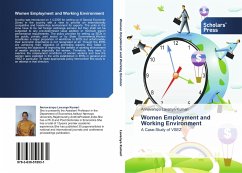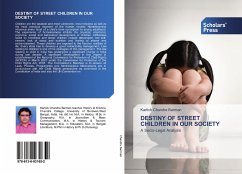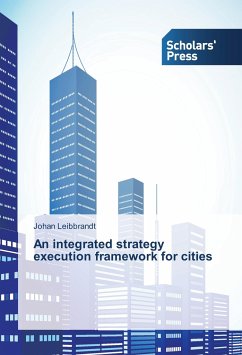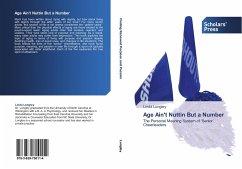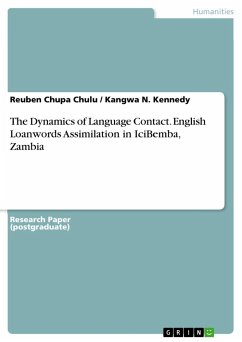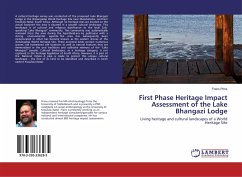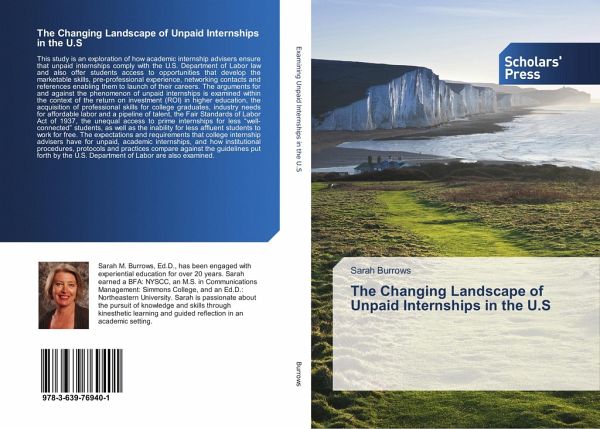
The Changing Landscape of Unpaid Internships in the U.S
Versandkostenfrei!
Versandfertig in 6-10 Tagen
42,99 €
inkl. MwSt.

PAYBACK Punkte
21 °P sammeln!
This study is an exploration of how academic internship advisers ensure that unpaid internships comply with the U.S. Department of Labor law and also offer students access to opportunities that develop the marketable skills, pre-professional experience, networking contacts and references enabling them to launch of their careers. The arguments for and against the phenomenon of unpaid internships is examined within the context of the return on investment (ROI) in higher education, the acquisition of professional skills for college graduates, industry needs for affordable labor and a pipeline of ...
This study is an exploration of how academic internship advisers ensure that unpaid internships comply with the U.S. Department of Labor law and also offer students access to opportunities that develop the marketable skills, pre-professional experience, networking contacts and references enabling them to launch of their careers. The arguments for and against the phenomenon of unpaid internships is examined within the context of the return on investment (ROI) in higher education, the acquisition of professional skills for college graduates, industry needs for affordable labor and a pipeline of talent, the Fair Standards of Labor Act of 1937, the unequal access to prime internships for less "well-connected" students, as well as the inability for less affluent students to work for free. The expectations and requirements that college internship advisers have for unpaid, academic internships, and how institutional procedures, protocols and practices compare against the guidelines put forth by the U.S. Department of Labor are also examined.





